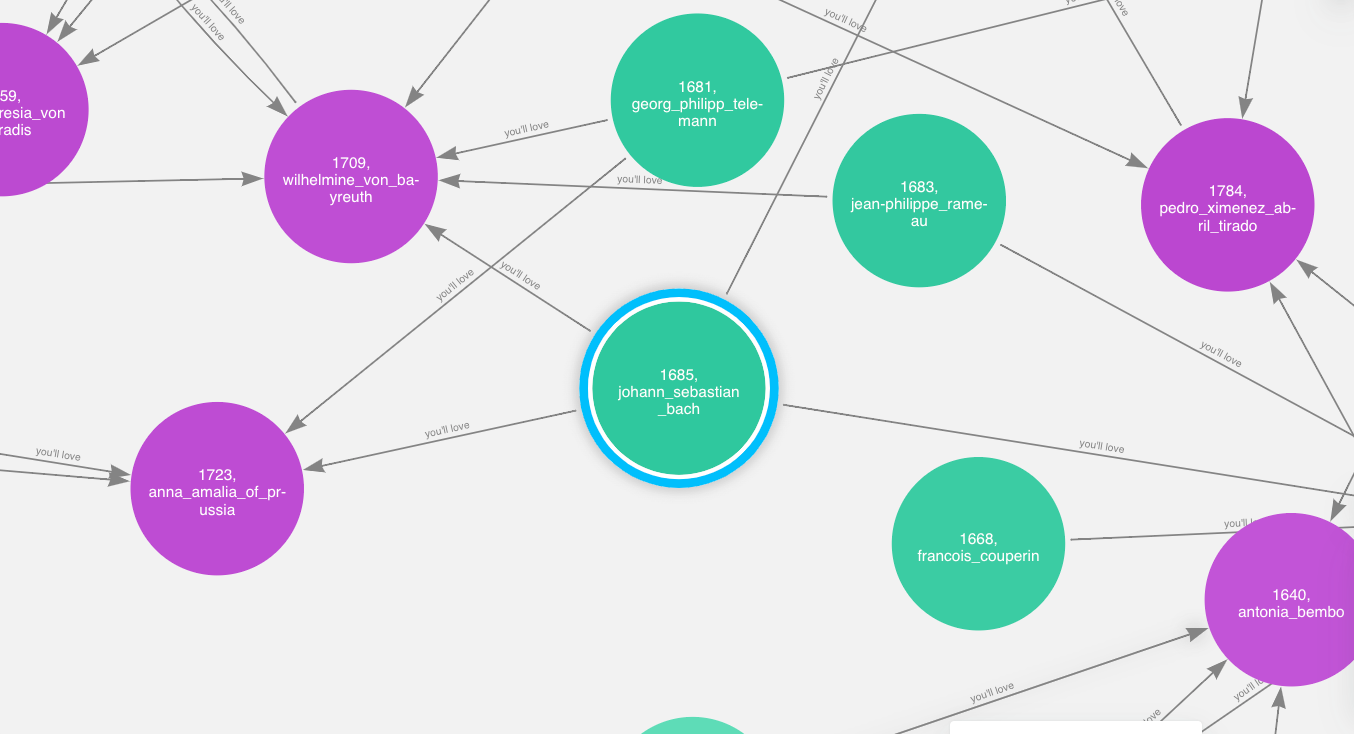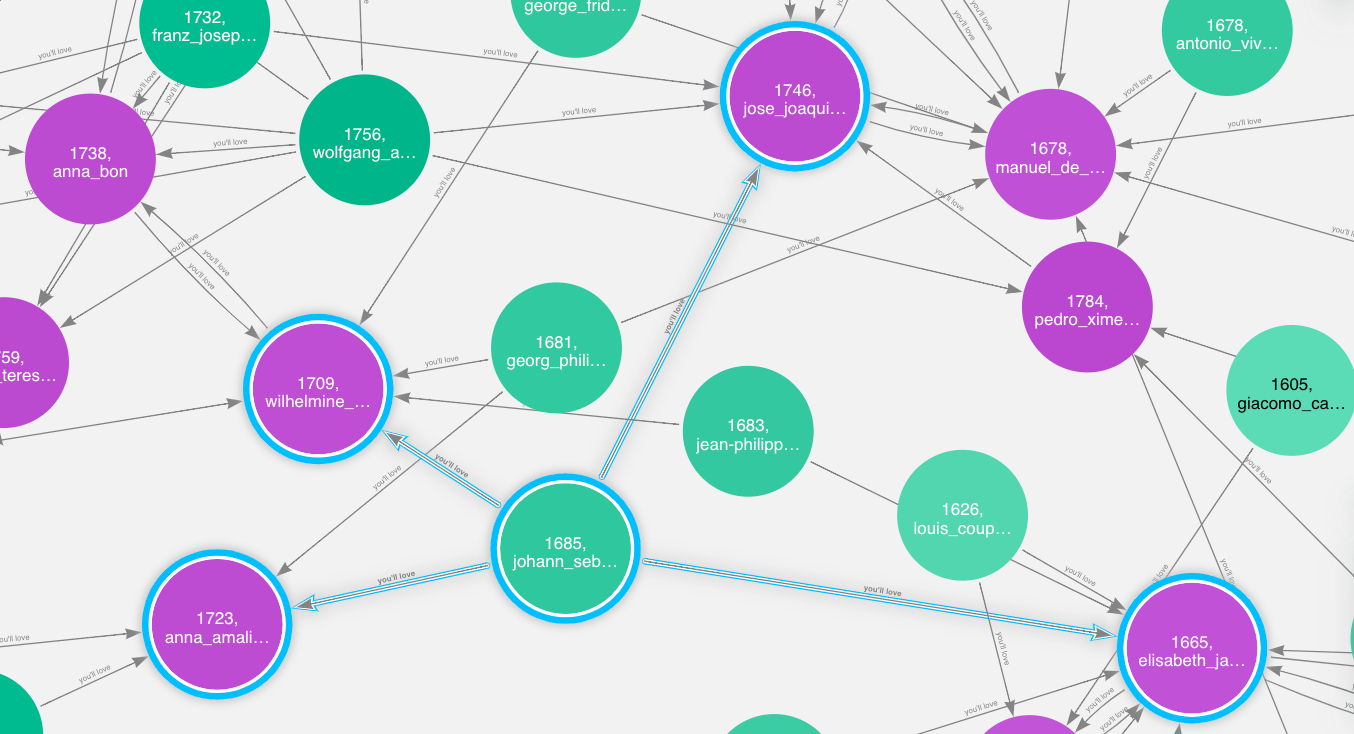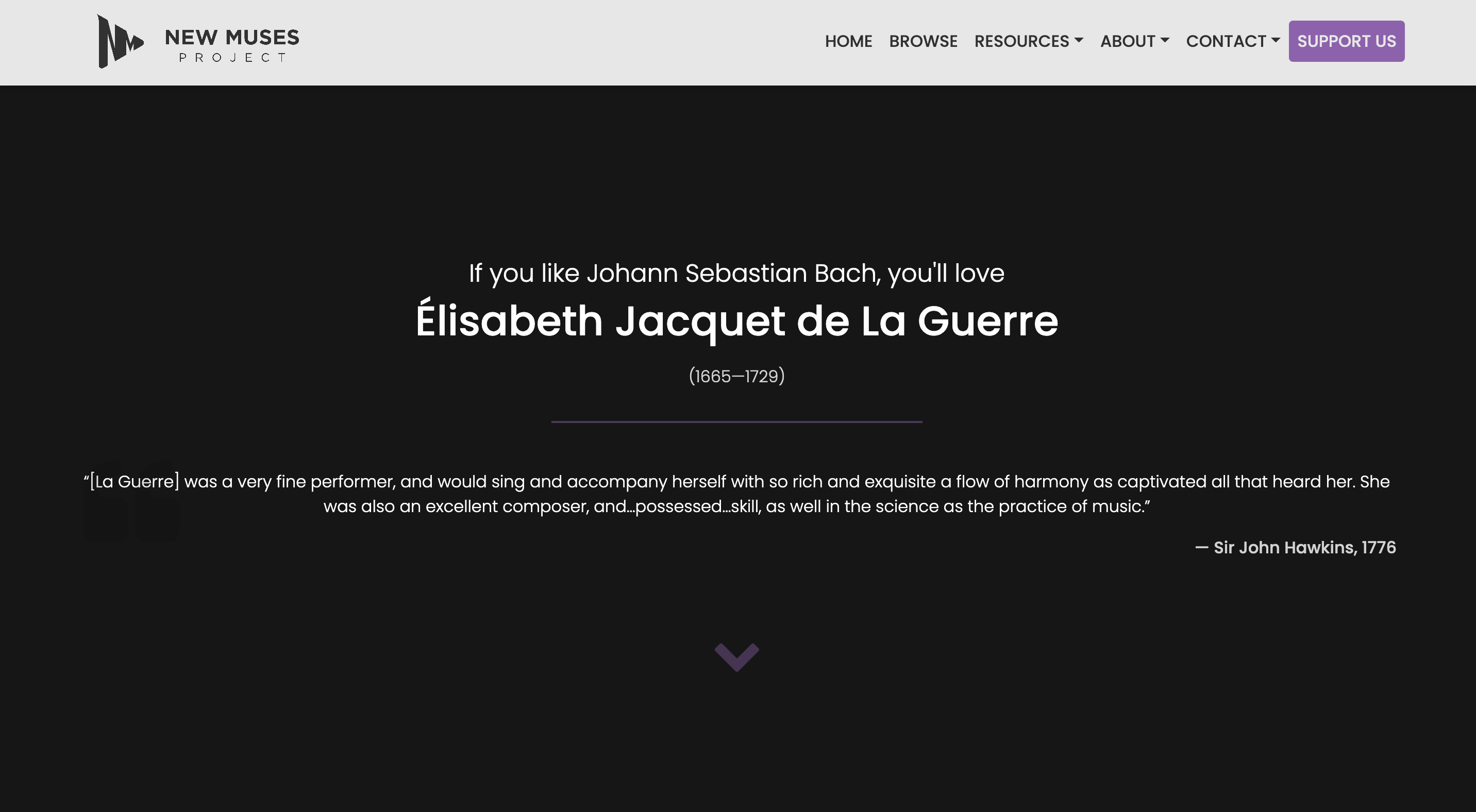How it works
New Muses Project makes composer recommendations! Here's how it works.
When you give us the name of a composer you like, a chain-reaction of tasks are set off.
First, we dig into our database to locate the composer you're thinking of. Say you've typed in Johann Sebastian Bach.

Then, we see which other composers Bach is connected to. We've curated each of these connections based
on parameters such as historical era, influences, genres composed, location, style, and sound. We focus
on composers that have been systematically excluded from the canon.

Finally, we pick one of these connections at random to suggest back to you!


